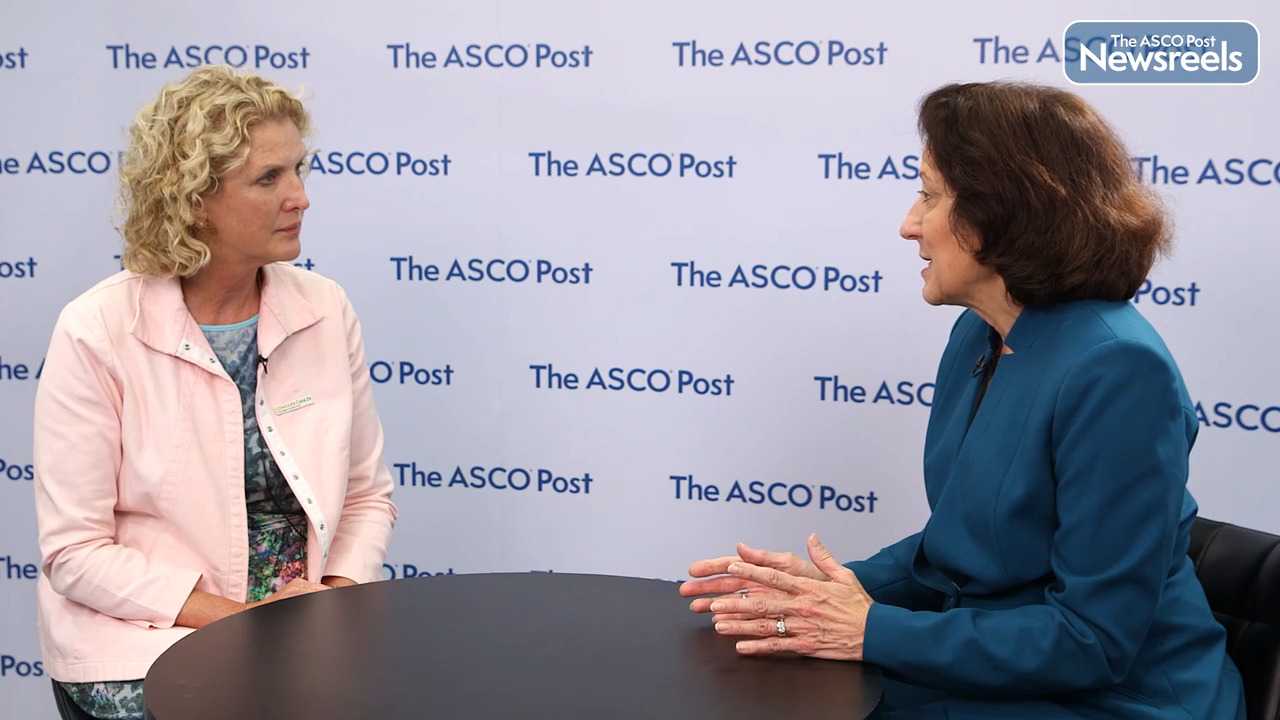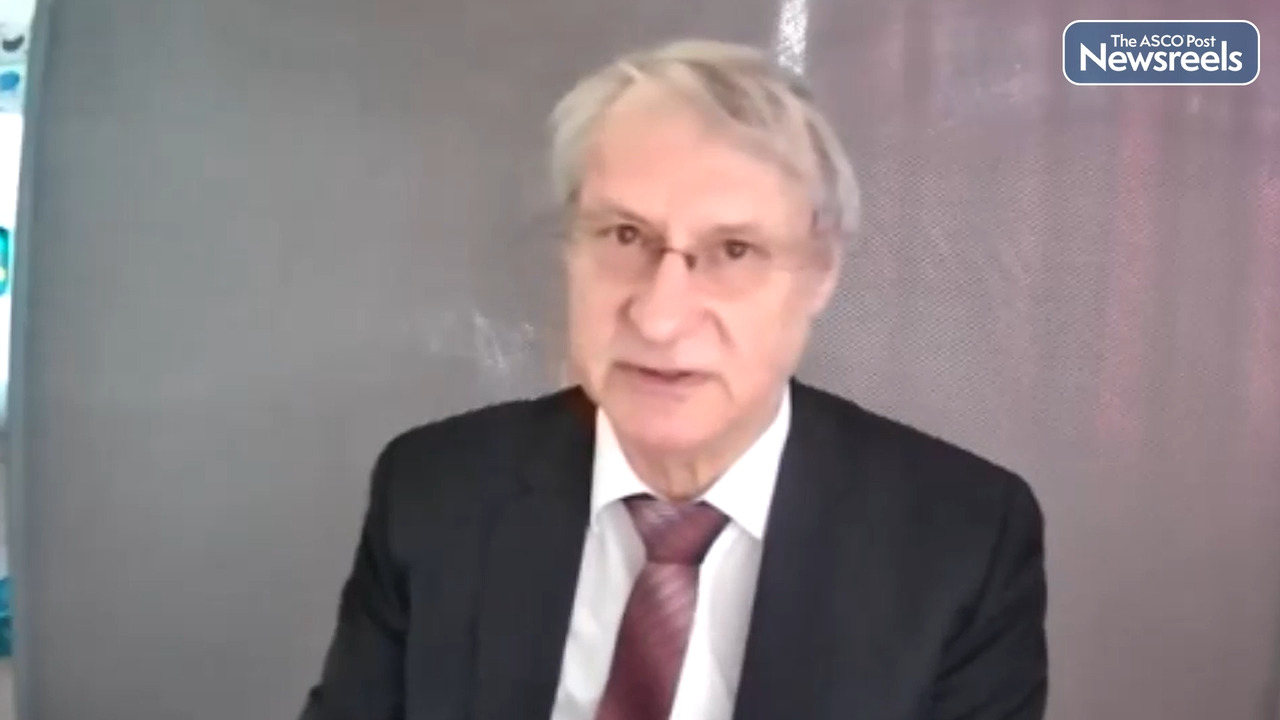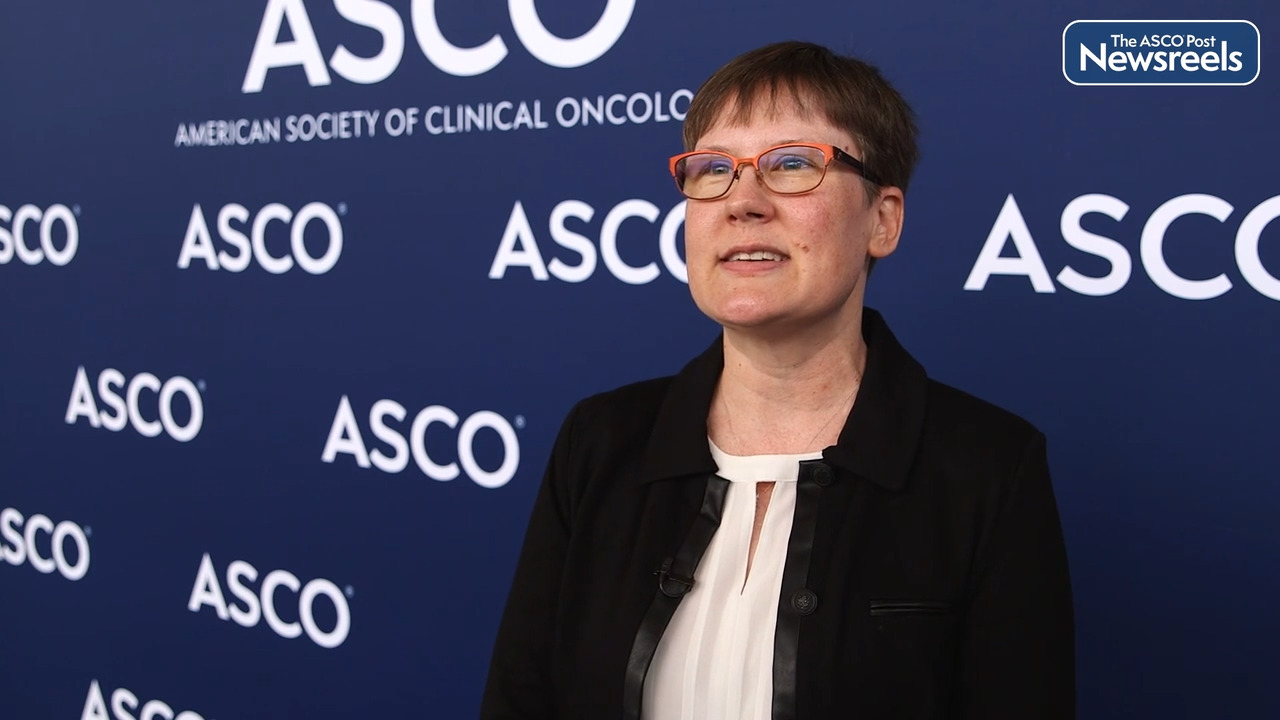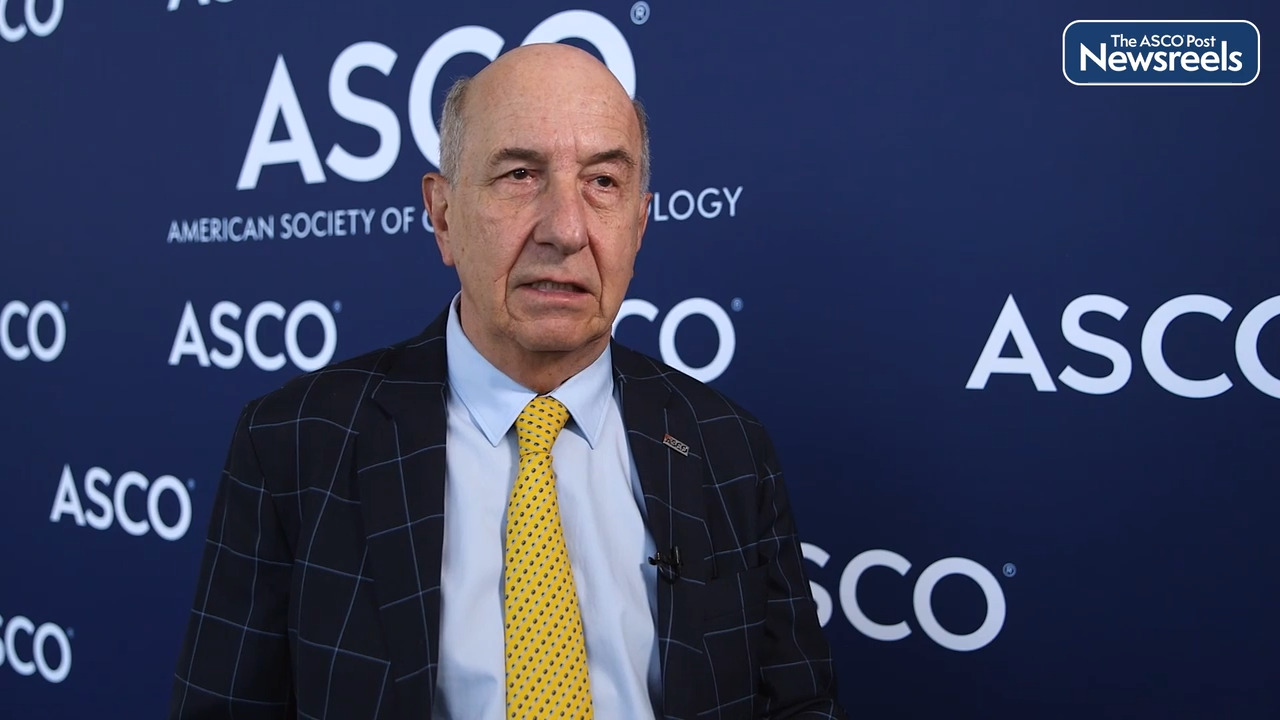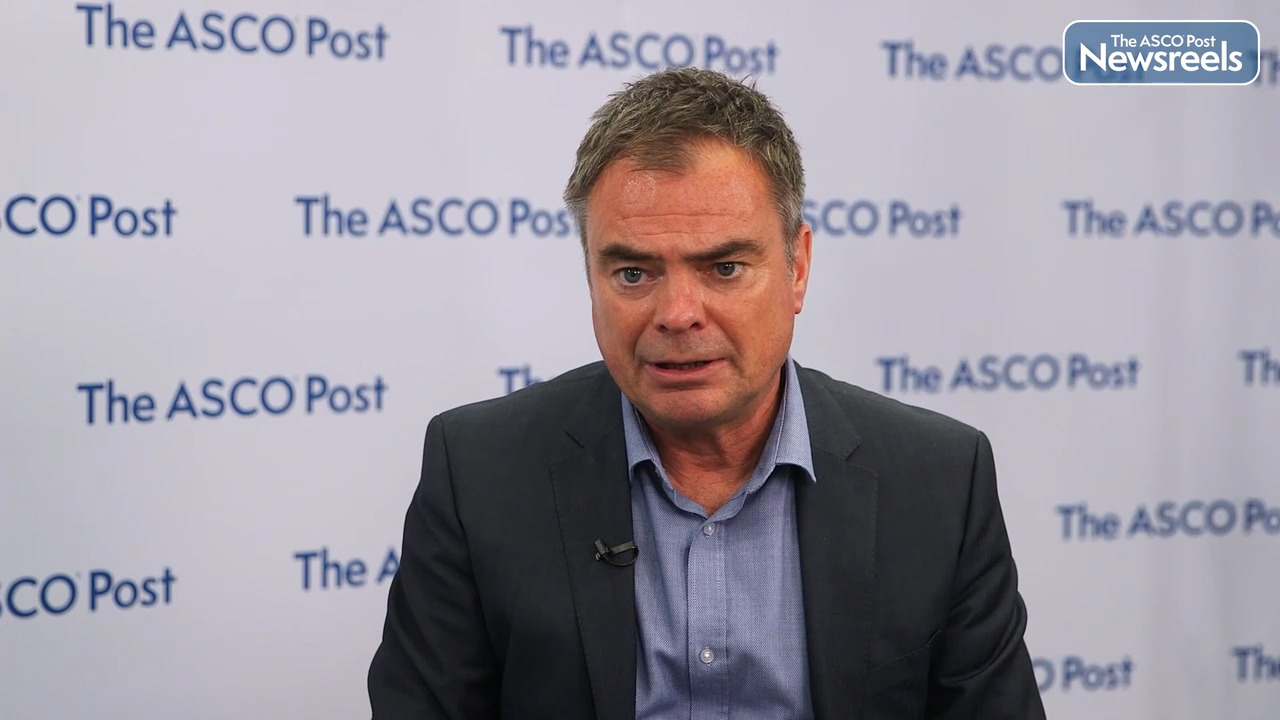Tara B. Sanft, MD, on How Diet and Exercise May Affect Completion of Chemotherapy for Breast Cancer
2022 ASCO Annual Meeting
Tara B. Sanft, MD, of Yale University, discusses the results of the LEANer study (Lifestyle, Exercise, and Nutrition Early After Diagnosis) in women with breast cancer. It showed that patients with newly diagnosed disease who were just starting chemotherapy could improve physical activity and diet quality. While both groups had high rates of treatment completion, women in the intervention who exercised at or above the recommended levels did better in terms of treatment completion, with fewer dose reductions and delays (Abstract 12007).
Transcript
Disclaimer: This video transcript has not been proofread or edited and may contain errors.
We know completing chemotherapy as prescribed is important for cancer outcomes. We also know that adopting healthy diet and exercise is important, both for cancer prevention and, in certain cancers, can improve cancer-related survival. The healthy diet and exercise guidelines include eating a predominantly plant-based diet and exercising with moderate intensity exercise at least 150 minutes per week, and performing two strength training sessions per week. Our study, the Lifestyle, Exercise, and Nutrition Study, randomized women who were not meeting these guidelines to a healthy diet and exercise intervention based on the Diabetes Prevention Protocol and adapted using the cancer-related guidelines as well versus usual care, which is referral to our survivorship clinic and dieticians and exercise programs at request by the patient. Our primary outcome was looking at the relative dose intensity, or the actual amount of chemotherapy received compared to that which was prescribed. The intervention group received a year-long intervention of 16 sessions administered by a registered dietician who was certified, specialized in oncology, and also had exercise counseling training. The control group were followed at baseline post-chemotherapy. What we found was that both groups completed chemotherapy at very high rates, with both groups approaching about 93% completion rates. This is higher than what we had found in the literature before. We also found that the number of dose delays and reductions were similar between the two groups. When we looked at the intervention group, in particular, and we looked at if they were meeting the actual recommendations, that is 150 minutes per week and a high consumption of fruits and vegetables, we found that women who were able to meet these guidelines or exceeded them, did have higher completion rates compared to those who didn't quite make those guidelines. So in summary, the women who made the highest number of changes or adhered the best did have better relative dose intensity and fewer dose reductions and delays. But when we took the entire intervention group and compared them to usual care, we did not find a statistically significant difference. In summary, both groups completed their chemotherapy as prescribed most of the time, and the intervention group significantly improved both their diet and physical activity during the course of the intervention. Those who were able to adopt the exercise and diet recommendations the best did have significant improvements in their completion rates and fewer dose reductions and delays compared to those who didn't adopt it as well.
Related Videos
Lisa A. Carey, MD, of the University of North Carolina Lineberger Comprehensive Cancer Center, and Hope S. Rugo, MD, of the University of California, San Francisco, Helen Diller Family Comprehensive Cancer Center, discuss phase III results from the TROPiCS-02 trial. This study showed that sacituzumab govitecan-hziy was more beneficial than single-agent chemotherapy in terms of progression-free survival in heavily pretreated patients with hormone receptor–positive/HER2-negative and unresectable advanced breast cancer (LBA1001).
The ASCO Post Staff
Rainer Fietkau, MD, of Germany’s University Hospital Erlangen, discusses phase III findings of the CONKO-007 trial, which examined the role of sequential chemotherapy and chemoradiotherapy administered to patients with nonresectable locally advanced pancreatic cancer following standard-of-care chemotherapy (Abstract 4008).
The ASCO Post Staff
Carryn M. Anderson, MD, of the University of Iowa Hospital, discusses phase III results of the ROMAN trial of avasopasem manganese for patients with severe oral mucositis who are receiving chemoradiotherapy for locally advanced, nonmetastatic head and neck cancer. Compared with placebo, avasopasem manganese improved severe oral mucositis (Abstract 6005).
The ASCO Post Staff
Alfredo Carrato, MD, PhD, of Alcala de Henares University in Spain, discusses phase II results from the SEQUENCE trial, which showed that nab-paclitaxel, gemcitabine, and modified FOLFOX showed significantly higher clinical activity than the standard nab-paclitaxel and gemcitabine in the first-line setting of patients with untreated metastatic pancreatic ductal adenocarcinoma (Abstract 4022).
The ASCO Post Staff
Robert Hugh Jones, MD, PhD, of Cardiff University and Velindre Hospital, discusses results from an updated analysis of the FAKTION trial, which showed improved overall survival with fulvestrant plus capivasertib in women with metastatic estrogen receptor–positive breast cancer whose disease had relapsed or progressed on an aromatase inhibitor. The benefit may be predominantly in patients with PIK3CA/AKT1/PTEN pathway–altered tumors, a topic researchers continue to study in the phase III CAPItello-291 trial (Abstract 1005).
